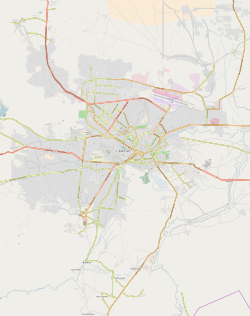Suicide bombing
For the suicide bombing that occurred later the same month, see 30 April 2018 Kabul suicide bombings.
| 22 April 2018 Kabul suicide bombing | |
|---|---|
| Part of the War in Afghanistan and Persecution of Shias by the Islamic State | |
| Location | 34°31′06″N69°07′37″E / 34.51833°N 69.12694°E / 34.51833; 69.12694 Kabul, Afghanistan |
| Date | April 22, 2018 10 a.m. (UTC+4:30) |
| Target | Shia Hazaras |
Attack type | Suicide bombing |
| Weapons | Suicide vest |
| Deaths | 69 |
| Injured | 120 |
| Perpetrators | Islamic State of Iraq and the Levant – Khorasan Province |
On 22 April 2018, a suicide bombing killed 70 people and wounded dozens more Sunday at a voter registration center in Koche Mahtab Qala, in the Hazara-majority Dashte Barchi area of western Kabul, Afghanistan. [1] [2] In addition to the fatalities, at least 120 others were injured in the attack. [3] [4]

